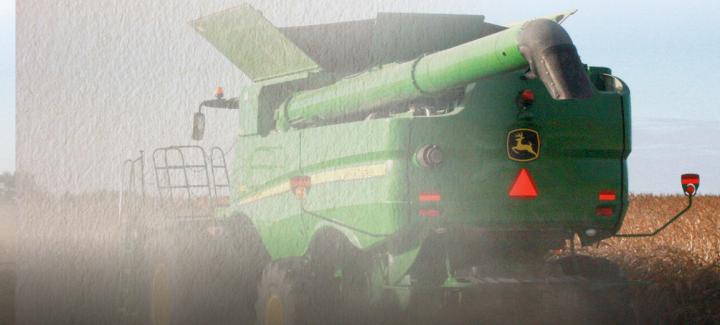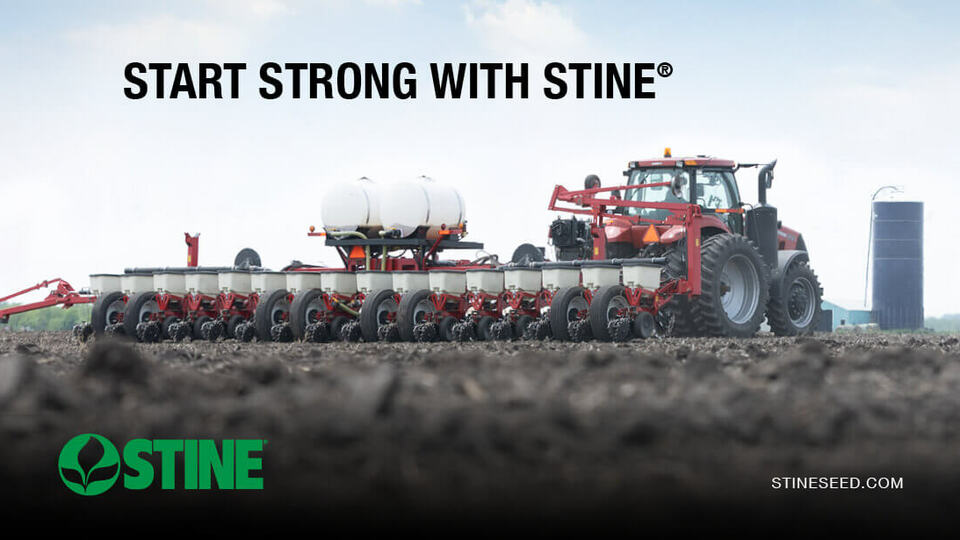
This year’s National Farm Safety and Health Week motto is “No One Can Take Your Place,” and they’re right; no one can replace you in the field, at the farm or in your home. Ranked as one of the most hazardous professions, farmers are at an increased risk for fatal and nonfatal farm injuries. Even family members are in jeopardy with their involvement in farm operations and living on or near the premises.
According to a report from the U.S. Bureau of Labor Statistics in 2021, workers in the ag, forestry, fishing and hunting industries experienced fatal injury rates at 20 deaths per 100,000 full-time workers, compared to a rate of 3.6 deaths per 100,000 for all other industries. Farm safety is crucial to the livelihood of a farm operation and its operators. Follow these farm safety tips to ensure you, your employees and family are safe at the farm, in the field and on the road all year..
8 IMPORTANT FARM SAFETY TIPS
Think “F.A.R.M. S.A.F.E.”
Familiarize yourself with all equipment safety standards and the responsibilities of each worker on the farm. Ensure employees and family members are adequately trained and understand emergency procedures. A lack of experience or farm safety training can put anyone at risk of injury on the farm. Even if they don’t assist in day-to-day activities, farm safety for kids is equally important.
Avoid wearing loose clothing around farm equipment as it can get caught and lead to falls or being pulled into augers. Moving parts can quickly snatch a loose sleeve or baggy shirt when you least expect it. Remember to wear protective equipment such as gloves, goggles and steel-toed boots to reduce farm injuries.
Read markings on every vehicle and their safety manuals. Heavy machinery is one of the most common causes of death in agriculture. Knowing how to properly operate machinery can prevent serious injury. Each piece of equipment should come with manufacturer recommendations for safety usage. ATV/UTV accidents are also on the rise, so understanding their intended use and weight capacity may stop one from rolling over or being hit on a roadway.
Maintain your equipment to ensure it’s running properly before you hit the field. Not only is it important to do this step for harvest but all year. Before you take your seat behind the wheel, walk around your equipment to check for loose parts, flat tires and more. With harvest bringing long hours in the field, check that all lights are operational so you can see and be seen.
Stock a first aid kit in your truck, tractor and barn. The National Education Center for Agricultural Safety has a first aid kit with farm injuries in mind you can purchase that includes trauma shears, large bandages, a thermal blanket, eye wash, ice packs, a CPR face shield and much more. If you have allergies, stock your first aid kit with supplies to remedy those symptoms.
Ask for help. Farming is stressful, and your emotional well-being is just as important as your physical health. If you or someone you know is in emotional distress, call the 988 Suicide & Crisis Lifeline.
Follow instructions when handling chemicals. Read the material safety data sheets before using any chemicals so you know what to do in case an emergency occurs. You can take farm safety courses to learn best practices with the application or handling of these materials. Store chemicals in a locked area away from people and animals.
Employ an effective lifeline system when working in and around grain bins. This includes wearing a harness and having a second person nearby, both of which can assist you in the unfortunate event you are trapped and engulfed in grain. Serious injuries related to grain bins can be reduced if farmers and their colleagues are properly trained and follow safety procedures.
Farm safety should be top of mind all year. Be aware of your surroundings, know your limits and have an emergency plan in place. Remember, NO ONE CAN TAKE YOUR PLACE. Visit the National Education Center for Agricultural Safety for more farm safety tips and training opportunities.
Related Articles
-

Leveraging drone technology for improved research
February 2026 in Agronomy
-

MX Series Corn by Stine®: Proven performance for 2026
January 2026 in Agronomy
-

Start strong with Stine®: Maximizing your 2026 potential
January 2026 in Agronomy
-

Stine® to offer Syngenta’s Victrato® soybean seed treatment in 2026
December 2025 in Agronomy



